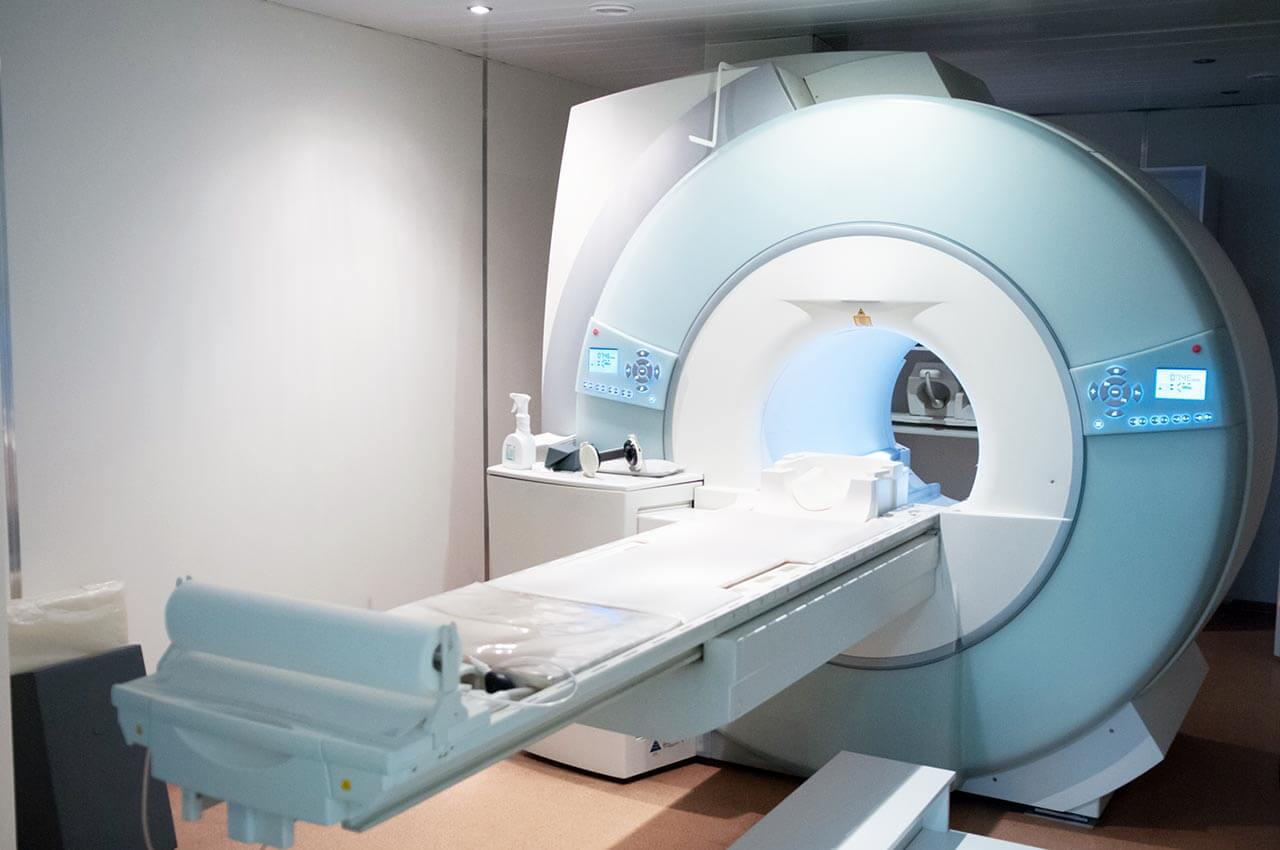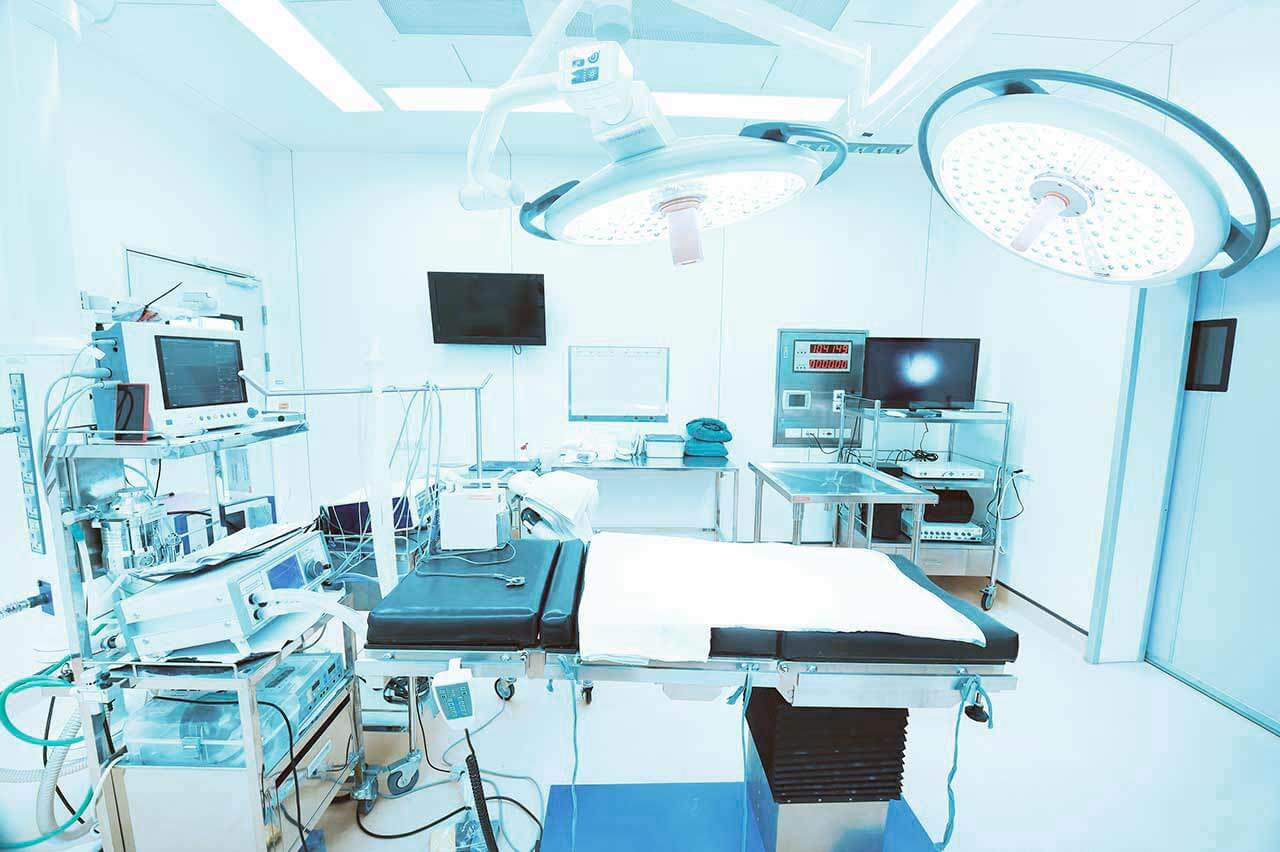
The program includes:
- Initial presentation in the clinic
- clinical history taking
- review of medical records
- physical examination
- laboratory tests:
- complete blood count
- general urine analysis
- biochemical analysis of blood
- inflammation markers (CRP, ESR)
- blood coagulation analysis (aPTT, PT, INR)
- hormone test (estradiol, progesterone, prolactin, DHEA-s, FSH, LH)
- gynecological examination:
- colposcopy
- vaginal swab
- pelvic ultrasound
- transvaginal ultrasound
- breasts ultrasound
- ultrasound of the abdomen and thyroid gland
- CT/ MRI (if clinically indicated, additional cost is 650/1200 €)
- nursing services
- consultation of related specialists
- treatment by chief physician and all leading experts
- explanation of individual treatment plan
Required documents
- Medical records
- Results of hormone blood tests (if available)
Service
You may also book:
 BookingHealth Price from:
BookingHealth Price from:
About the department
According to the Focus magazine, the Department of Endocrinology, Diabetology, Angiology and Nephrology at the University Hospital Tuebingen ranks among the top German departments specializing in the treatment of diabetes mellitus!
The department offers the full range of accurate diagnostics and optimal treatment of diabetes mellitus, diseases of the endocrine organs, kidneys, as well as pathologies of arteries and veins. The department's doctors have in their arsenal the very latest diagnostic methods, traditional and innovative therapeutic options. In addition, the department's specialists pay due attention to the exhaustive consultations and individual, careful medical care of each patient. The department is headed by Prof. Dr. med. Dr.h.c. Hans-Ulrich Häring.
The main clinical focuses of the department include:
- Diabetology (certification of the German Diabetes Association for the treatment of type 1 and 2 diabetes mellitus)
- Diagnostics
- Comprehensive express diagnostics of patients with diabetes mellitus
- Continuous blood glucose measurement and follow-up correction of treatment in diabetes mellitus
- Differential diagnostics of diabetes mellitus (including genetic testing)
- Screening of all components of metabolic syndrome
- Screening in diabetes-related complications (micro- and macrovascular complications in diabetes mellitus)
- Therapy
- All types of glucose-lowering therapy (diet, exercise, drug therapy with pills, all types of insulin therapy)
- Combination therapy
- Insulin pump therapy, including sensory insulin pumps
- Diet therapy and lifestyle modification for the prevention of the development of pathology
- Treatment of diabetes-related complications
- Prevention
- Diagnostics
- Endocrinology
- Diagnostics
- Laboratory examinations, in particular hormone diagnostics
- Endocrine function tests
- Examination of metabolic processes
- Genetic examinations
- Ultrasound diagnostics
- Doppler and duplex scanning
- Needle biopsy
- Scintigraphy (in collaboration with the Department of Nuclear Medicine)
- Radiological examinations (X-ray, CT, MRI, in collaboration with the Department of Radiology)
- Therapy
- Treatment of endocrine diseases
- Treatment of lipid metabolism disorders and other metabolic disorders
- Interdisciplinary obesity treatment
- Diagnostics
- Nephrology (diagnostics and treatment of kidney diseases, arterial hypertension)
- Peritoneal dialysis
- Hemodialysis
- Kidney biopsy
- Angiology
- Diagnostic capabilities
- Color duplex sonography
- Bidirectional doppler ultrasound
- Acral pulse oscillography
- Treadmill ergometer
- Capillary microscopy
- Reflex light rheovasography (diagnostics of venous function)
- Transcutaneous partial pressure measurement of oxygen (TcPO2)
- Digital photoplethysmography
- Digital subtraction angiography
- MR angiography
- CT angiography
- 24-hour blood pressure monitoring
- Intima-media thickness determination
- Diagnostics and treatment of the following vascular diseases
- Peripheral vascular occlusive disease
- Deep vein thrombosis
- Varicose veins and chronic venous insufficiency
- Raynaud's phenomenon
- Thromboangiitis obliterans (Buerger’s disease)
- Vasculitis
- Vascular malformations
- Lymphedema
- Diabetic foot syndrome
- Extracranial cerebral artery stenosis
- Secondary arterial hypertension (renal artery stenosis)
- Mesenteric artery stenosis
- Thrombophilia screening (in collaboration with the Department of Hematology)
- Diagnostic capabilities
- Other medical services
Curriculum vitae
- Since 1996, Head of the Department of Endocrinology, Diabetology, Angiology and Nephrology at the University Hospital Tuebingen.
- Since 1998, Senior Physician, Department of Internal Medicine III, Munich-Schwabing Hospital and Diabetes Research Institute.
- 1987 Habilitation and appointment as PD of Internal Medicine, Ludwig Maximilian University of Munich.
- 1983 Assistant, Department of Internal Medicine III, Munich-Schwabing Hospital, Diabetes Research Group.
- 1982 - 1983 Fellow of the German Research Foundation, Joslin Diabetes Center, Harvard Medical School, Boston, United States.
- 1977 - 1980 Assistant at the Diabetes Research Institute, Department of Internal Medicine III, Munich-Schwabing Hospital.
- 1977 Doctoral thesis defense at the Ludwig Maximilian University of Munich.
- 1976 - 1977 Assistant Physician, Munich-Schwabing Hospital, as well as the Maimonides Medical Center, Brooklyn, New York, USA.
- 1969 - 1975 Study of Medicine in Freiburg and Munich.
Positions in Scientific Societies and Organizations
- 2002 - 2006 Dean in Charge of Research, University of Tuebingen.
- Board Member of the German Diabetes Research Center (DZD).
Awards and Honorary Memberships
- 2016 Mering Gold Medal of the German Diabetes Center (DDZ).
- 2015 Claude Bernard Prize.
- Since 2013, Member of the National Academy of Sciences Leopoldina.
- 2011 Hellmut Mehnert Prize (in collaboration with Errol Morrison).
- 2010 Dr.h.c. of the University of Athens.
- 2008 Paul Langerhans Medal of the German Diabetes Association.
- 1989 Oskar Minkowski Prize of the European Association for the Study of Diabetes.
- 1987 Ferdinand Bertram Prize of the German Diabetes Association.
- 1978 German Diabetes Association Award for the Doctoral Thesis.
Main Focuses of the Research Activities
- Pathogenesis of type 2 diabetes mellitus.
- Risk factors for diabetes mellitus.
- Prevention of diabetes mellitus.
- Gene-environment interaction.
- Molecular biology in metabolic disorders.
Photo of the doctor: (c) Universitätsklinikum Tübingen
About hospital
According to the prestigious medical publication Focus, the University Hospital Tuebingen ranks among the top five German hospitals!
The hospital was founded in 1805, therefore it is proud of its long history, unique experience, and outstanding achievements in the field of medical care, as well as research and teaching activities. Nowadays, it is one of the most advanced medical institutions, which provides a wide range of general and highly specialized medical services. The hospital combines the state-of-art medical technologies in the field of diagnostics and the very latest treatment methods of a wide range of diseases.
The hospital has 17 specialized departments, which cover almost all fields of modern medicine and contribute to the top-class medical service in Germany. It treats about 367,000 outpatients and 74,000 inpatients annually. This testifies to the high authority of the hospital at the national and international medical arena. This is the first German hospital, which confirmed the high quality of healthcare and the effectiveness of service with a KTQ certification (in 2009).
Photo: (с) depositphotos
Accommodation in hospital
Patients rooms
The patients of the University Hospital Tuebingen live in comfortable single and double rooms with an ensuite bathroom equipped with a shower and toilet. The beds in the patient rooms are equipped with orthopedic mattresses that promote good and full sleep. There is a TV in the room, and it is also possible to connect a smartphone or laptop to the Internet. In addition, there is enough space in the patient room to receive 2-3 guests without inconvenience for the second patient.
The enhanced-comfort rooms include a hairdryer, heated towel rail, a large mirror, a direct dial telephone, a flat-screen satellite TV, a writing desk, free Internet access, a mini-bar and a refrigerator.
Meals and Menus
The patients of the hospital are offered tasty and healthy three meals a day: breakfast, lunch and dinner. Breakfast is served as a buffet, while for lunch and dinner there is a choice of several menus. Also, if desired, the patient will be provided with an individual menu. There are several cafes and cafeterias on the territory of the hospital, where one can have a tasty meal or enjoy a cup of coffee, tea and dessert.
Further details
Standard rooms include:
Religion
Religious services are available upon request.
Accompanying person
During the inpatient program, an accompanying person can stay with you in a patient room or in a hotel of your choice.
Hotel
During the outpatient program, you can stay in a hotel of your choice. Our managers will help you choose the most suitable option for you.




